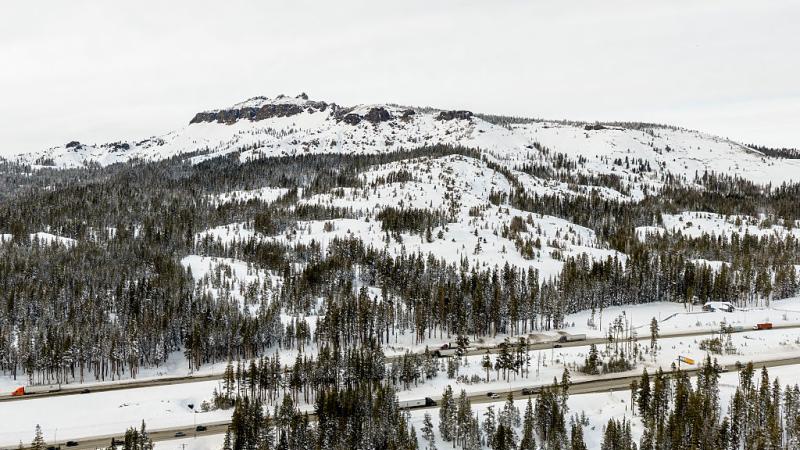National Archives lawyer central to Mar-a-Lago raid documents sued Reagan while at ACLU
Gary Stern has been the general counsel for the National Archives and Records Administration since 1998.
The general counsel for the National Archives and Records Administration, who was central to coordinating between NARA and former President Donald Trump's attorneys regarding the documents at Mar-a-Lago, previously sued then-President Ronald Reagan in 1989 while working at the American Civil Liberties Union.
Mar-a-Lago was raided by the FBI's Washington Field Office on Aug. 8, after Trump's team had voluntarily given documents to NARA and was working through issues of executive privilege.
Trump defense attorney Evan Corcoran wrote NARA General Counsel Gary Stern on April 29 that the former president wanted to personally review the documents that NARA had received from Mar-a-Lago before letting the FBI access them "in order to ascertain whether any specific document is subject to privilege."
President Joe Biden empowered NARA to waive any claims to executive privilege that Trump might assert to block DOJ from gaining access to the documents.
Earlier this year, Stern was reportedly frustrated while working with Trump's team regarding the return of documents to NARA from Mar-a-Lago, according to CNN. Stern has been the general counsel for NARA since 1998.
Stern's NARA bio notes that he was a plaintiff in the case of Armstrong, et al. v. Executive Office of the President while a staff attorney for the Washington Office of the ACLU. The case, which began towards the end of Reagan's presidency in 1989, wasn't decided until 1993.
The U.S. District Court of the District of Columbia decided in favor of the plaintiffs with regard to the Reagan administration having to maintain electronic records, but noted the distinction between federal records and presidential records.
The court said that, according to the Court of Appeals for the District of Columbia Circuit, it "has no power to review compliance with the [Presidential Records Act], and thus, no power to review the record keeping procedures of [Executive Office of the President] components whose 'sole responsibility is to advise the President.'"
Stern spoke on a panel in January 2021 called "Preserving Presidential Papers and Archives," where he explained the Presidential Records Act of 1978 — which was central to the Armstrong case — and how presidential records are supposed to be maintained.
In response to a question about someone leaving government and taking presidential records with them, Stern said that if original government documents that NARA doesn't have are removed from the White House, then NARA will tell the person that "they have something that doesn't belong to them and is government property and belongs to us."
Most of the time in such cases, he said, the person gives it back. But, he added, "If they don't, we can enforce that with the support of the Department of Justice to file a legal claim."
Katie Sullivan, a former deputy assistant attorney general in the Trump Justice Department, told the John Solomon Reports podcast on Monday's episode that Stern's statements on the panel of "what he feels about presidential records" were "sort of a shot across the bow."
She mentioned a February CNN report about Stern, which mentioned his frustration with obtaining documents from the Trump team.
Sullivan said that the situation with NARA seeking documents from Trump and the subsequent Mar-a-Lago raid appeared to her "like this has been something that was certainly cooked up for some time."
According to the CNN story, Stern reached out to a White House Counsel's Office attorney and another Trump lawyer regarding the documents to be turned over.
Trump said in a statement at the time that the boxes he took to Mar-a-Lago "contained letters, records, newspapers, magazines and various articles" that would "someday" be featured in his presidential library, CNN reported.
"The papers were given easily and without conflict and on a very friendly basis," the former president added.
NARA said in a statement at the time, "Former President Trump's representatives have informed NARA that they are continuing to search for additional Presidential records that belong to the National Archives."














